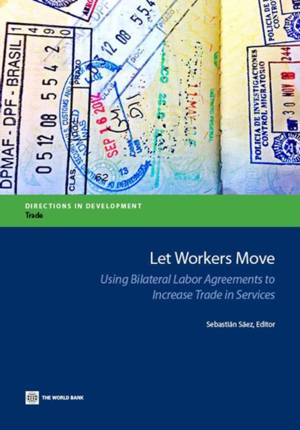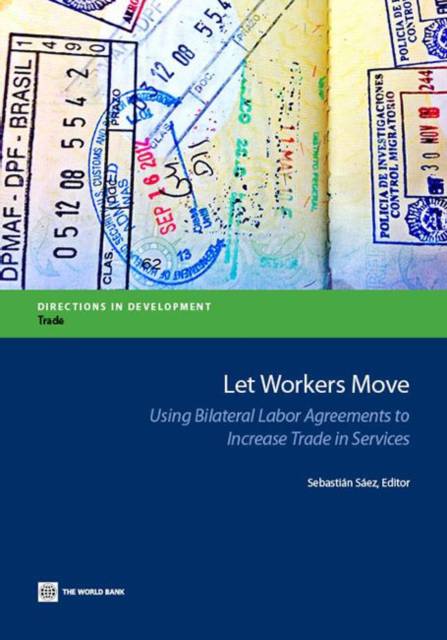
Bedankt voor het vertrouwen het afgelopen jaar! Om jou te bedanken bieden we GRATIS verzending (in België) aan op alles gedurende de hele maand januari.
- Afhalen na 1 uur in een winkel met voorraad
- In januari gratis thuislevering in België
- Ruim aanbod met 7 miljoen producten
Bedankt voor het vertrouwen het afgelopen jaar! Om jou te bedanken bieden we GRATIS verzending (in België) aan op alles gedurende de hele maand januari.
- Afhalen na 1 uur in een winkel met voorraad
- In januari gratis thuislevering in België
- Ruim aanbod met 7 miljoen producten
Zoeken
Let Workers Move
Using Bilateral Labor Agreements to Increase Trade in Services
€ 44,45
+ 88 punten
Omschrijving
"Unlike the movement of capital, the movement of labor across countries remains highly restricted-despite the huge global returns to international labor mobility. If the benefits of temporary labor mobility are so great, why is there not more movement? Progress appears to have been stymied not by the forum of negotiations but by the political sensitivity associated with even temporary labor mobility. To circumvent this problem, the use of bilateral labor agreements, which are generally not part of trade agreements, has been proposed as an alternative means of increasing temporary labor mobility. This book analyses the viability and performance of these agreements as a complement to other efforts to liberalize the temporary movement of people. It is based on the experiences of sending and receiving countries in Europe, North America, the Caribbean, and the Pacific. Although bilateral labor agreements are not designed to promote services exports by the sending country, they can be used to do so. Countries can design flexible strategies that combine both international trade and bilateral labor agreements. Trade agreements can provide rules and disciplines that grant market access for a wide range of activities. In contrast, bilateral labor agreements can allow countries, especially developing countries, to focus on the temporary movement of very specific categories of workers, such as computer programmers or electricians within the construction sector. The experiences of some Caribbean countries, the Pacific Islands countries, and the Philippines illustrate the importance of shared responsibility-at the design, implementation, and institutional levels. At the design level, sending and receiving countries need to agree on a set of objectives and align the design to meet them. At the implementation level, joint and cooperative management involving state and nonstate actors on both sides is required. At the institution-building level, needs must be jointly diagnosed, capacity constraints addressed, and, if possible, progress monitored and evaluated. Bilateral labor agreements can be an attractive option for middle-income countries whose migratory flows are relatively small and do not generate fears in receiving countries. Source country governments should make credible commitments to ensure the temporary nature of these flows. In conjunction with the private sector, they should establish mechanisms for selecting the sectors to promote in target markets."
Specificaties
Betrokkenen
- Uitgeverij:
Inhoud
- Aantal bladzijden:
- 190
- Taal:
- Engels
- Reeks:
Eigenschappen
- Productcode (EAN):
- 9780821399156
- Verschijningsdatum:
- 1/07/2013
- Uitvoering:
- Paperback
- Formaat:
- Trade paperback (VS)
- Afmetingen:
- 178 mm x 254 mm
- Gewicht:
- 340 g

Alleen bij Standaard Boekhandel
+ 88 punten op je klantenkaart van Standaard Boekhandel
Beoordelingen
We publiceren alleen reviews die voldoen aan de voorwaarden voor reviews. Bekijk onze voorwaarden voor reviews.








